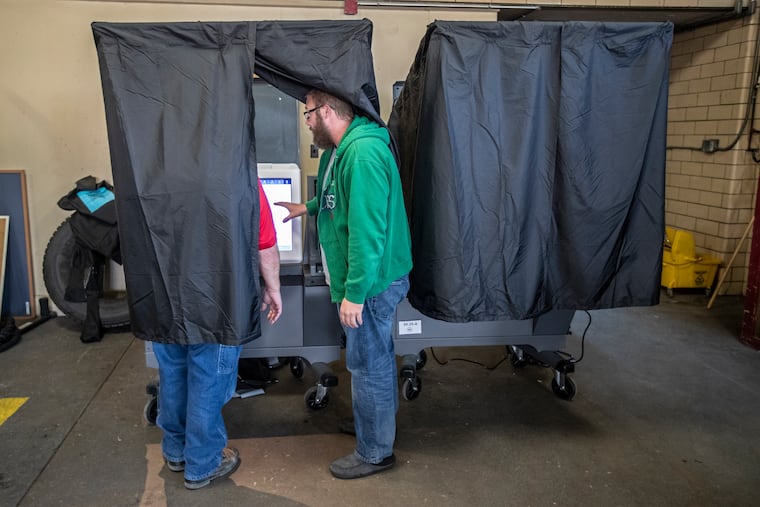Pennsylvania lawmakers want an earlier presidential primary — and the attention that comes with it
Under the proposal, Pa.’s 2024 primary would come two weeks after Super Tuesday, the date when multiple states accounting for about 40% of delegates cast ballots.

Pennsylvania lawmakers are considering moving up the state’s presidential primary election beginning in 2024, which would give Pennsylvania more say in picking the Democratic and Republican nominees for the White House.
Currently, Pennsylvania has little voice in presidential nominating contests because the primary is held at the end of April, after most other states have voted. That’s despite the fact Pennsylvania remains a key battleground state in the general election. Along with Michigan and Wisconsin, Trump’s razor-thin 2016 win in Pennsylvania gave him its 20 Electoral College votes and helped elevate him to the White House.
“We are one of the last states,” State Sen. John R. Gordner (R., Columbia) said at a Senate State Government Committee hearing Monday. Primary races are often essentially decided by the time Pennsylvania votes, with candidates dropping out after disappointing finishes in other states.
The committee voted unanimously Monday to approve the bill, sending it to the full Senate for consideration. If it passes there, it will go to the House.
Gordner introduced the legislation, S.B. 779, last summer with support from some Republicans and Democrats. The bill proposes a simple change to the state Election Code: In presidential election years, move primaries from the fourth Tuesday of April, when they are currently held, to the third Tuesday of March.
“It’s important that we, being the fifth or sixth largest state, have a meaningful impact with regard to the primary,” Gordner said at Monday’s hearing.
If enacted, the change would take effect in 2024 — next year’s primary is set for April 28 — and would not run afoul of rules set by the national Democratic or Republican organizations, Gordner said.
Connecticut, Delaware, Maryland, New York, and Rhode Island currently hold their primary elections at the same time as Pennsylvania. If Pennsylvania’s election were moved up, it would jump ahead of them and a handful of others, including Wisconsin, Georgia, and Louisiana. Other states can and do change their election dates, and periodic attempts by states to encroach on Iowa’s and New Hampshire’s first-in-the-nation status have drawn the ire of those states and of national party officials.
Under the proposal, Pennsylvania’s primary would come two weeks after Super Tuesday, the date when multiple states, accounting for about 40% of delegates, cast ballots. Had the change under consideration been enacted in time for the 2020 primary season, it would have set Pennsylvania’s primary for March 17, joining Arizona, Florida, Illinois, and Ohio.